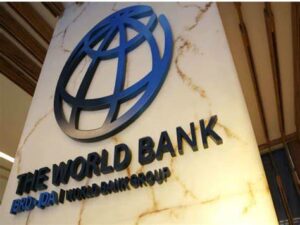Nigeria’s Remittance Surge: CBN Reports Record $553m Inflows for July 2024
In a remarkable financial development, the Central Bank of Nigeria (CBN) has reported a historic surge in remittance inflows, reaching an unprecedented $553 million in July 2024. This figure marks a staggering 130 per cent increase compared to the same period in 2023 and stands as the highest monthly total ever recorded.
The announcement was made by the CBN’s Acting Director of Corporate Communications, Sidi Ali, who highlighted that this significant rise in remittances is a direct result of the bank’s strategic efforts to enhance liquidity in Nigeria’s foreign exchange market. “The CBN has reported a significant increase in remittance inflows, reaching $553m in July 2024, a 130 per cent increase from the corresponding period in 2023. This figure represents the highest monthly total inflows on record and reflects ongoing efforts by CBN to enhance liquidity in Nigeria’s foreign exchange market,” the statement read.
This notable increase in remittance receipts, the CBN explained, is largely attributable to a series of policy measures implemented to stimulate the flow of foreign currency into the country. Among these initiatives were the granting of licenses to new International Money Transfer Operators (IMTOs), the adoption of a willing buyer-willing seller model, and facilitating prompt access to naira liquidity for these operators.
Diaspora remittances have long been a critical source of foreign exchange for Nigeria, supplementing other key financial inflows such as foreign direct investment and portfolio investments. The CBN emphasized the growing importance of these remittances in supporting the nation’s economy. “Diaspora remittances are a crucial source of foreign exchange for Nigeria, supplementing both foreign direct investment and portfolio investments,” the statement noted.
The Central Bank’s initiatives, aimed at doubling formal remittance receipts within a year, have evidently begun to bear fruit, as evidenced by the dramatic rise in inflows. This surge is seen as a testament to the success of the CBN’s ongoing efforts to bolster public confidence in the foreign exchange market, reinforce a robust and inclusive banking system, and promote price stability—key factors essential for sustained economic growth.
Adding to the positive economic indicators, recent data from the National Bureau of Statistics revealed that Nigeria’s year-on-year headline inflation rate slowed in July 2024 for the first time in 19 months. The CBN attributed this development to its stringent monetary policy tightening measures, which appear to be delivering the desired results.
“The increase in remittances is a strong testament to the success of the CBN’s ongoing efforts to bolster public confidence in the foreign exchange market, strengthen a robust and inclusive banking system, and promote price stability, which is essential for sustained economic growth,” the CBN added.
The Central Bank also expressed optimism that the current trend in remittance inflows would contribute significantly to achieving broader objectives, particularly in maintaining stability within the foreign exchange market. The CBN assured that it will continue to monitor market conditions and adjust policies as necessary to facilitate even greater remittance flows into Nigeria.
In a related development, the CBN acknowledged the recent decline in the country’s inflation rate as a clear sign that its monetary measures are beginning to yield results. This downturn in inflation is viewed by the CBN as further evidence of the effectiveness of its strategies in stabilising the economy and controlling inflationary pressures.
As the CBN continues to implement and refine its policies, the future looks promising for Nigeria’s economic stability, with increasing remittance inflows playing a crucial role in bolstering the nation’s foreign exchange reserves and supporting broader economic growth.



